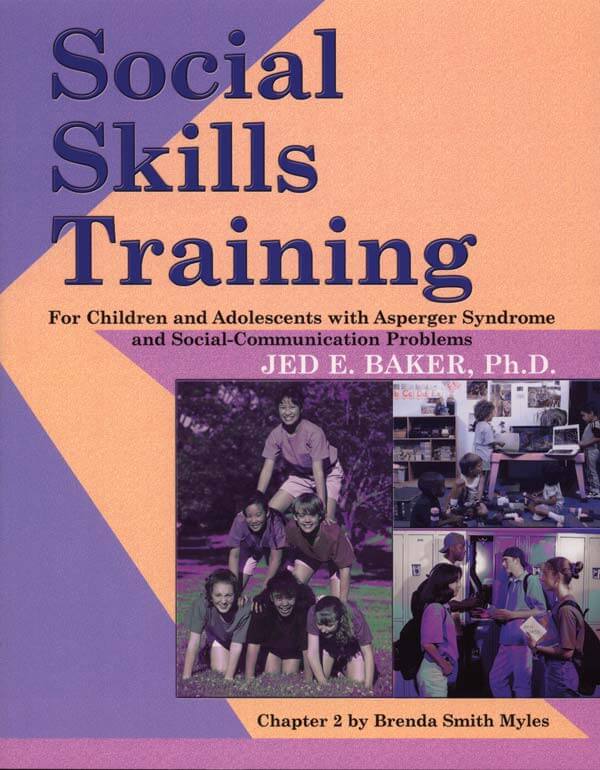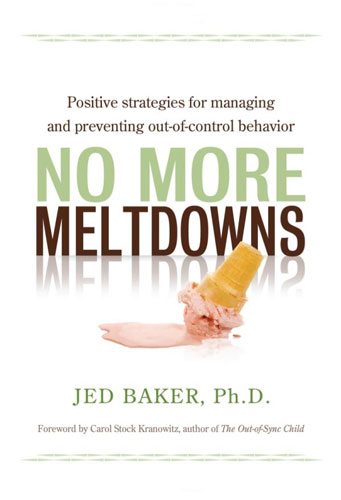
Baker, Jed, Ph.D.
Jed Baker is the director of the Social Skills Training Project, an organization serving individuals with autism and social communication problems. He is on the professional advisory board of ASPEN, ANSWER, YAI, the Kelberman Center and several other autism organizations. In addition, he writes, lectures, and provides training internationally on the topic of social skills training and managing challenging behaviors. He is an award winning author of six books, including Social Skills Training for Children and Adolescents with Aspergers Syndrome and Social Communication Problems; Preparing for Life: The Complete Handbook for the Transition to Adulthood for Those with Autism and Aspergers Syndrome; The Social Skills Picture Book; The Social Skills Picture Book for High School and Beyond; No More Meltdowns: Positive Strategies for Managing and Preventing Out-of-Control Behavior, and No More Victims: Protecting those with Autism from Cyber Bullying, Internet Predators & Scams. His work has also been featured on ABC World News, Nightline, Fox News, the CBS Early Show, and the Discovery Health Channel.
All Kids Can Succeed: Effective Interventions for Behavioral and Social Challenges
Students on the autism spectrum and those with behavioral challenges often present with difficulty regulating their feelings and interacting socially. This workshop describes how to handle meltdowns and design effective behavior plans to prevent these moments and reduce frustration and anxiety. The second part of the presentation details strategies to motivate students to learn, ways to teach social skills, how to generalize skills into the natural setting and increase acceptance and tolerance from peers. Information will be imparted though lecture, interactive exercises, and video clips.
Understanding Challenging Behaviors in children with Aspergers, Autism, NLD, ADHD, Bipolar disorder, and multiple learning disabilities:
Hierarchy of Behavior/Frustration Management Strategies
- Relationship building and collaborative problem solving
- De-escalating meltdowns
- 7 common triggers and prevention plans for each trigger
Social Skills Training
- Prioritizing skill goals
- Motivation for training
- Skill acquisition: strategies to teach skills
- Generalization strategies
- Peer sensitivity training
- Measuring progress
- Q and A
Outcome objectives
- To understand the reasons for social skill deficits and disruptive behaviors.
- To learn strategies to deal effectively with meltdowns and be able to put together an effective behavior plan to prevent frustrations.
- To learn ways to motivate verbal and non-verbal students to want to socialize.
- To learn several strategies for teaching and generalizing skills.
- To learn how to create programs for typical peers to accept students with disabilities and model positive behaviors.
-
No More Victims: Protecting those with Autism from Cyber Bullying, Internet Predators, and Scams
The digital world offers a wonderful way to communicate and socialize with others. Yet, it is also rife with the dangers of being victimized emotionally, physically, and financially.
$20.95 Product Details »
-
Overcoming Anxiety in Children and Teens
Author Jed Baker describes motivational techniques, cognitive behavioral strategies, exercises, relaxation and mindfulness guides to lower anxiety to the point where individuals can begin to confront their fears . The book covers: simple phobias, social phobia, selective mutism, separation anxiety and school refusal, panic disorder, obsessive compulsive disorder, somatic symptom disorder and/or illness anxiety disorder, generalized anxiety disorder, perfectionism, and other common fears.
$20.95 Product Details »
-
School Shadow Guidelines
Your child may find it difficult to adapt to new surroundings and learning environments from time to time. School Shadow Guidelines helps guide your child to develop appropriate behaviors in school, establish an environment that helps to strengthen academic ability, and also build up on his/her social interaction skills with the goal of independence.
$20.95 Product Details »








